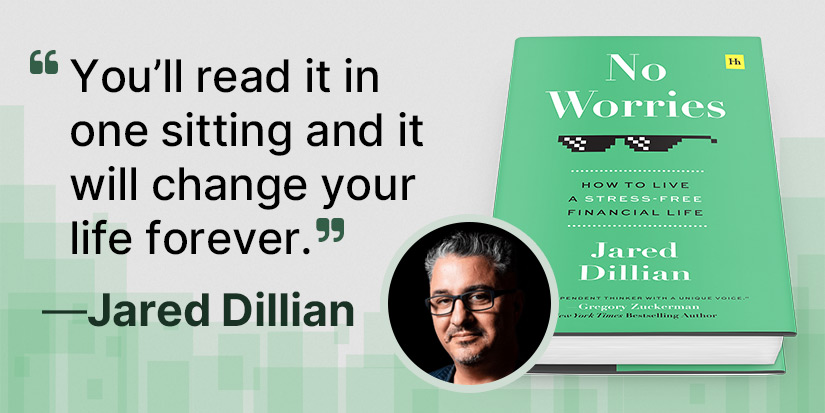
American Chop Suey
-
 Jared Dillian
Jared Dillian
- |
- September 14, 2017
- |
- Comments
Pretty cheap to trade these days—$7 or whatever. Inconsequential. Costs less than lunch.
Some online brokers will give you the first 50/100/200 trades free. What a deal!
There are consequences. Have you ever gotten nervous about one of your positions, sold out of it, then watched helplessly as it shot up 40% in 6 months?
Chances are you are overtrading. It’s a terrible affliction, and most investors succumb to it.
High Commissions Are Better
I’m going to say something truly radical: high broker commissions are better.
Whoa, wait a minute, I thought low transaction costs were the Holy Grail? Don’t we want frictionless, costless trading? Don’t we want to put banks and brokers out of business? Don’t we want to disintermediate Wall Street?
Maybe—but low commissions are terrible for investor psychology.
Let me give you an example. You buy 2,000 shares of XYZ at $20 a share, paying a $7 commission. It goes up to $40/share. Hooray! But then it goes down to $30/share.
You panic and sell it, paying a $7 commission. It then goes up to $80/share. You cry yourself to sleep on your big, fat pillow.
What if your commission structure was not $7 per trade, but $.07 per share?
In this case, you would have paid a $140 commission to sell your shares of XYZ.
Would it have prevented you from selling it? Maybe! Higher transactions costs force you to take a long-term view. You have to be pretty sure about the trade if you are going to pay your broker $140.
Talk to any broker at a full-service shop. They have clients with portfolios of stuff that hasn’t been touched for decades, largely because people weren’t willing to pay a commission to sell it. Stocks generally go up over time. This is how people get rich.
With low commissions, everyone fancies themselves as a hedge fund trader, whipping around shares or SPY and QQQ (more like TVIX, actually).
A lot of people who took the survey last week (it’s still online, if you have a couple of minutes to spare) waved the red flag on that. A whole pile of you said one of the main problems with ETFs is that they are too easy to trade.
Like what you're reading?
Get this free newsletter in your inbox every Thursday! Read our privacy policy here.
Deep down, everyone knows that the best financial advice you could possibly get is to buy and hold… but nobody buys and holds!
ETFs for the Long Run
ETFs are funds. Just like mutual funds. You wouldn’t day trade mutual funds, would you?
At least, that is what Jack Bogle was saying years ago, about ETFs. What is the point of buying and selling the S&P 500 intraday? What economic purpose does that serve?
Bogle is about 1/3 right. SPY is at the center of a huge derivatives complex—most of the trading activity is due to institutional hedging.
But yes, he is right. If you are an individual investor investing in the S&P 500, there is no reason to trade it intraday.
To be honest, there is no reason to trade most ETFs intraday.
For example, take the ETF EMLC, the Van Eck Vectors J.P. Morgan EM Local Currency Bond ETF. It invests in emerging market bonds—in local currency! A super important and interesting asset class.
Most EM debt is dollar-denominated, so this is both a bet on emerging economies and a huge bet against the dollar. It’s also very risky, because emerging market local currencies have a very checkered past. But cool!
There is no reason to day trade this ETF. It is something that you buy and hold—for years.
But:
- ETFs are listed on an exchange, and
- Commissions are low, so
- People think they need to be trading them all the time.
How to Be Smart
There are a couple of ways to outsmart yourself.
You could always move your account to a full service broker and pay $.07/share. You probably think that is a terrible idea. It might not be. The money you spend in commissions is probably less than you have urinated down the drain in stupid trading.
Or, a cheap way to do it is to pretend that your transaction costs are high.
Or, you can just tell yourself not to have such an itchy trigger finger, and hang on to these trades a bit longer.
Particularly ETFs. ETFs are a curious rascal, because they are so easy to trade and trade and trade, but most of them are actually meant to be held for years and years and years.
Like what you're reading?
Get this free newsletter in your inbox every Thursday! Read our privacy policy here.
- Taking profits too soon
- Taking profits too late
Of the two, 1. is less forgivable. Somewhere out there, someone sold Apple at $12/share. In fact, lots of people did. Seemed like a good idea at the time!
Buy and hold, hold, hold, and let those returns compound.
Especially with ETFs.
subscribers@mauldineconomics.com
Tags
Suggested Reading...
|
|

 Jared Dillian
Jared Dillian


